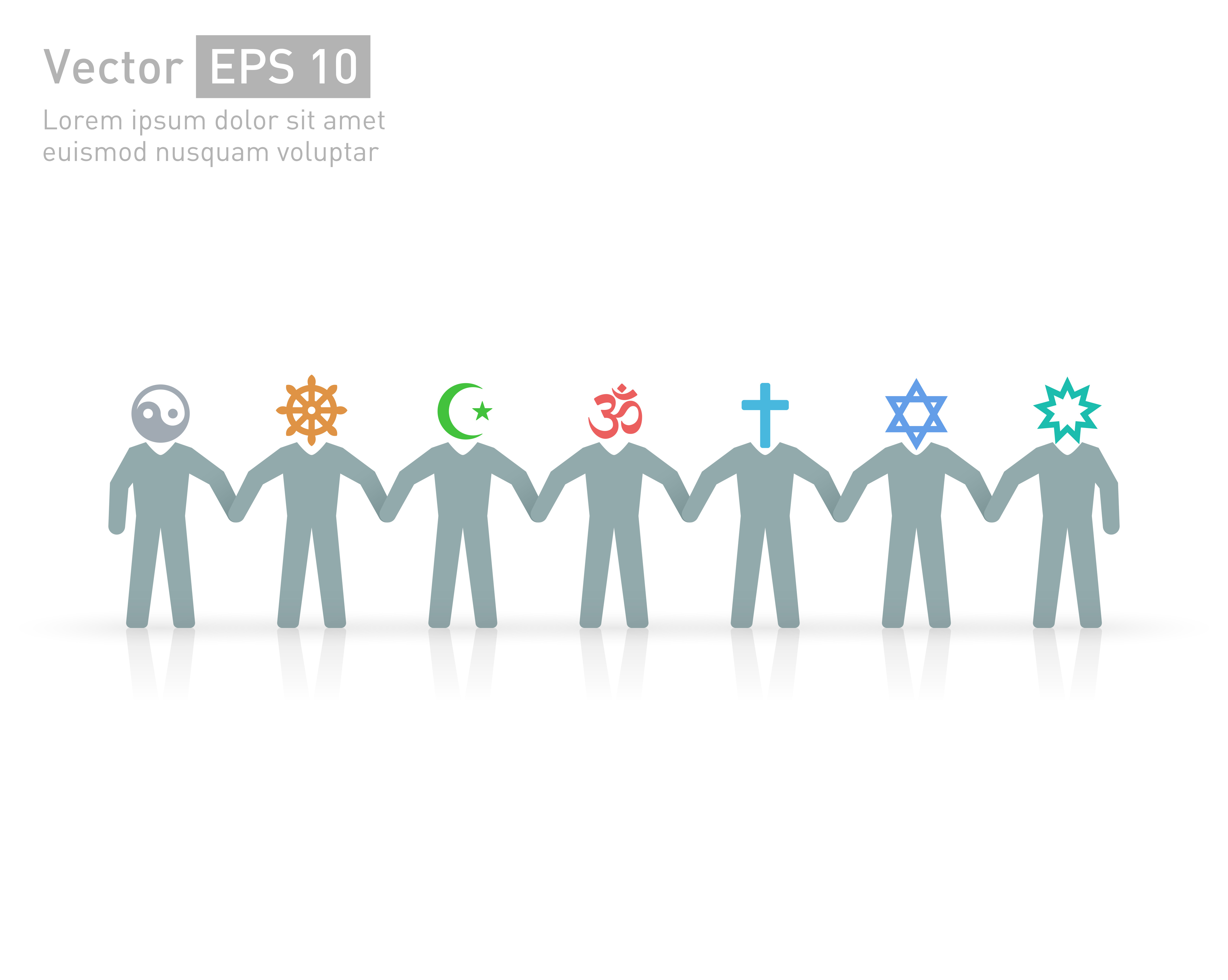
This article discusses the issues related to religion in the workplace, a topic that has received considerable attention in the media recently. An overview of significant cases of dispute between employers and employees is provided, as well as examples of social partners’ initiatives to accommodate the needs of religious people in the workplace.
Download the full article 'Religion in the workplace' (882KB PDF)
In the context of increased diversity in Europe, tensions linked to the rise of xenophobia prompted by the visible expression of religious beliefs and behaviours have emerged. In the workplace, conflicts regarding religion have been reported in a number of Member States. These involve contrasting attitudes towards religious values and their legitimacy in the working environment. In 2011, the European University Institute published a working paper on diversity challenges in Europe which argued that the integration and accommodation of ethnic and religious minorities was a key challenge for the European Union and that a spirit of tolerance, pluralism and social cohesion must be fostered in the 21st century.
Article 22 of the 2015 report on the application of the EU Charter of Fundamental Rights (PDF) stipulates that the European Union ‘shall respect cultural, religious and linguistic diversity’. However, there are growing concerns about the need to protect workers against discrimination, to enable their participation in the labour market and ensure the smooth process of the overall work organisation. At European level, Council Directive 2000/78/EC (the Employment Equality Directive) establishing a general framework for equal treatment in employment and occupation prohibits discrimination, either direct or indirect, on the basis of religion or belief. The directive covers ‘conditions for access to employment’ including ‘selection criteria and recruitment conditions’, ‘employment and working conditions including dismissals and pay’ and ‘membership of, and involvement in, an organisation of workers or employers, or any organisation whose members carry on a particular profession, including the benefits provided for by such organisations’, as listed in Article 3.
More recently, on 14 March 2017, in the wake of two cases in Belgian and French companies, the Court of Justice of the European Union (CJEU) clarified its interpretation of EU law against discrimination over the wearing of visible religious signs in the workplace. The Luxembourg judges recognised that companies can adopt a general company policy of religious and political neutrality that could result in the banning of headscarves. However the judges also recognised that a customer’s request not to professionally engage with an employee wearing a headscarf does not justify banning employees from wearing what are deemed to be religiously significant headscarves.
The present article provides insights into the extent of discrimination, the policy debate and some major recent disputes regarding religion at work. A literature-based policy-oriented reflection (PDF) on the exceptions, derogations and accommodations made for reasons of religious conviction and practices in the field of labour law for individual employees and for collective religious organisations and their staff was published by the RELIGARE project in 2010. Here the focus is on positive actions, such as accommodations made for reasons of religion conviction and practices in the field of labour law for individual employees, with particular emphasis on the opinions raised by social partners.
This topical update is largely based on contributions from Eurofound’s Network of European Correspondents for the EU28 Member States and Norway (see Annex 2).
Definitions of discriminationA 2016 study by the European Parliamentary Research Service on the implementation of Directive 2000/78/EC with regard to the principle of non-discrimination on the basis of religion or belief (PDF) outlined the different types of discrimination involved. Direct discrimination on the ground of religion or belief occurs ‘where one person is treated less favourably than another is, has been or would be treated in a comparable situation on the ground of religion or belief’. The study cites as an example an employer who does not want to employ anyone who is Muslim. Indirect discrimination occurs ‘where an apparently neutral provision, criterion or practice would put persons having a particular religion or belief … at a particular disadvantage compared with other persons unless: (i) that provision, criterion or practice is objectively justified by a legitimate aim and the means used to achieve that aim are proportionate and necessary’ (Article 2(2) (b) of the directive). An example would be where an employer prohibits employees to wear anything on their head. While this rule is neutral and applies to all employees in the same way, people who cover their head for religious reasons – for example, Muslim women who wear a headscarf, Jewish men who wear a skull cap and Sikh men who wear a turban – cannot comply with the rule. Positive action allows Member States to maintain or adopt specific measures to prevent or compensate for disadvantages linked to any of the grounds covered by the directive ‘with a view to ensuring full equality in practice’ (Article 7 of the directive). This could include the adoption and maintenance of ‘specific measures to prevent or compensate for disadvantages’, hence allowing for differential or more favourable treatment of individuals who have suffered disadvantages connected to a protected ground. A positive action measure could, for example, be an employer giving preference to a Muslim candidate for a job over a non-Muslim candidate, due to the fact that Muslims are underrepresented among the workforce and the employer is aiming to have a more diverse workforce. |
Above is an excerpt. The full article Religion in the workplace (PDF) has information on:
- Discrimination on the grounds of religion and belief at work
- Disputes about religion at work
- Involvement of the social partners